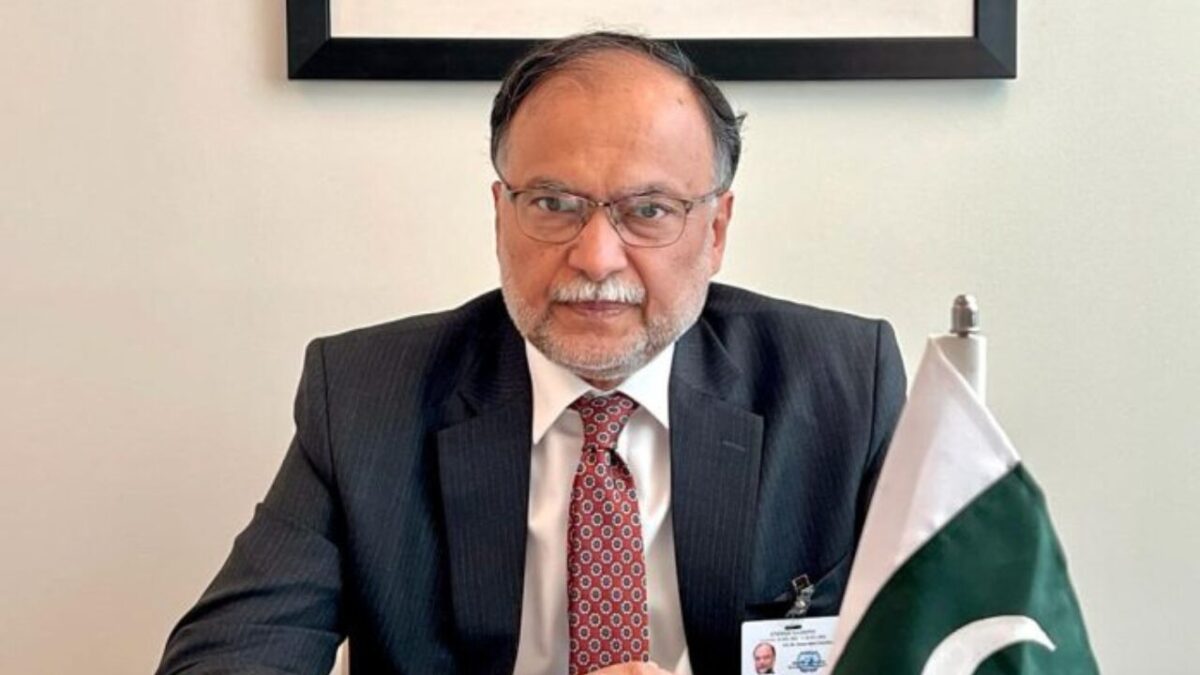Pakistan is grappling with what it calls a “new war on terrorism” and paying the cost of its “sacrifices” for the Afghan people, the country’s Minister for Planning, Ahsan Iqbal, said during a recent speech in Lahore.
Speaking at an event at the National College of Arts, Mr. Iqbal urged the Taliban to ensure that Afghanistan’s territory is not used for attacks on Pakistan. “The government of Pakistan has consistently conveyed to the Afghan administration to prevent the use of Afghan soil for terrorist activities against our country,” he said.
He emphasized Pakistan’s efforts to support Afghanistan over the years, noting, “Our people have made significant sacrifices for Afghanistan, but we are now facing the repercussions of those actions.”
Calls for cooperation amid rising tensions
Mr. Iqbal expressed hope that the Taliban would take steps to prevent militant groups from using Afghan territory to launch attacks on Pakistan. He highlighted Pakistan’s commitment to fighting terrorism, stating, “Sincere efforts and mutual dialogue always yield positive results.”
He also pointed to a recent meeting of Pakistan’s high-level committee on national security, which brought together political, military, and provincial leaders to declare a united stance against terrorism.
However, tensions between the two neighbors remain high. While the Taliban have repeatedly denied harboring militant groups, including the Tehrik-i-Taliban Pakistan (TTP), Pakistani officials remain skeptical.
Earlier, former Prime Minister Shehbaz Sharif accused the Afghan Taliban of providing safe havens to TTP fighters, enabling them to plan and execute attacks on Pakistani soil.
Cross-border strikes escalate
This mistrust has escalated into military action. In December, the Pakistani military launched airstrikes on four locations in Barmal district in Afghanistan’s Paktika Province. Pakistani authorities said the strikes targeted TTP militants in response to an attack that killed 16 Pakistani soldiers.
The Taliban, however, disputed this account, claiming the strikes killed 46 civilians, including women and children, and targeted “Waziristani refugees.”
Pakistan’s Ministry of Foreign Affairs defended the strikes as necessary to combat the TTP. Prime Minister Sharif later described them as a “crushing response” to anti-government militants, whom he labeled “Khawarij,” a term used to denote violent extremists.
The events have further strained relations between Pakistan and the Taliban rule in Afghanistan. Despite repeated assurances from Kabul, Pakistani officials continue to demand tangible action against militants operating across the border, underscoring the ongoing security challenges in the region.





